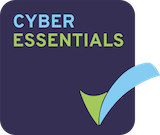In this blog, we aim to unravel the significance of coding in our modern world. From revolutionising industries to shaping our daily interactions, coding is not merely a skill, it is shaping the future. It is truly impressive how much today’s world relies on coding even in places you would least expect it.
Empowering Innovation and Problem-Solving
Coding is a list of step-by-step instructions that get computers to do what you want them to do.
Coding tests a variety of abilities, honing problem solving and analysis skills, such as finding errors and thinking logically. Coding allows individuals to express their creativity by bringing their ideas to life in digital form. Whether it is designing a new app, website design or developing a game, coding provides a medium for turning imagination to reality.
At its core, coding is about problem-solving. Programmers will break down larger problems into smaller ones – this is called decomposition. This process of breaking down problems and finding efficient solutions cultivates critical thinking and analytical skills that are valuable in various aspects of day-to-day life.
Driving Technological Advancements
Coding is the backbone of Artificial Intelligence (AI) and machine learning algorithms.
Engineers and data scientists use coding languages like Python, R, and TensorFlow to develop models that can learn from data, make predictions, and automate tasks. AI advancements have led to breakthroughs in areas such as natural language processing and autonomous systems.
Internet of Things (IoT) devices rely on coding to communicate with each other and perform tasks autonomously. Developers use languages like C, C++, and Python to program sensors, actuators, and microcontrollers. IoT advancements have enabled the creation of smart homes, wearable devices such as Apple watches, and industrial automation systems.
Coding skills are crucial for the development of new technologies. They allow developers to translate innovative ideas into tangible products or solutions. Whether it is creating software applications, designing algorithms, or programming hardware devices, coding is the practical means by which concepts are transformed into functional technology.
Coding is also critical for building secure and reliable technologies. Developers must adhere to best practices in coding standards, implement robust security measures and conduct thorough testing to ensure that new technologies are resilient to vulnerabilities such as cyber threats and system failures.
Unlocking Career Opportunities
With coding skills there are a wide range of career opportunities available. Some of these are within the Software Development, Web Design and Cyber security industries. Skills are in high demand, with companies in software development, IT services and tech start-ups constantly seeking talented developers, engineers, and programmers to build and maintain software products, applications, and platforms.
The finance industry heavily relies on technology for operations, data analysis, and financial services. Coding skills are in demand for developing trading algorithms, financial software, risk management systems and fintech innovations such as digital banking and payment processing; contactless payments, for example.
Fostering Critical Thinking and Creativity
Coding requires breaking down complex problems into smaller tasks. Programmers must analyse the problem, identify its components, and devise an appropriate approach to solve it. This process encourages critical thinking by fostering a structure and analytical mindset.
Writing code involves designing algorithms which are step-by-step procedures for solving specific problems. Coders must think algorithmically to develop efficient and effective solutions. This involves understanding the problem domain, devising logical sequences of instructions, and considering different approaches to tackle challenges.
Code can also be creative, such as web development. Web development offers creative opportunities in designing websites, crafting user interfaces, and developing interactive features. Programmers use their creative skills to design layouts, choose typography, and integrate multimedia elements to create engaging web experiences.
Another way coding is creative is through Game Development. Game Development is a highly creative aspect of coding, where developers design worlds, characters, and gameplay mechanics. Creativity is essential for crafting engaging storylines, designing unique game mechanics, and creating immersive environments that captivate players.
Bridging the Digital Divide
Learning to code empowers individuals by providing them with the knowledge and skills to navigate the digital world.
Through coding, education initiatives and underserved communities – including low-income individuals, minorities, and people in rural areas, – can gain access to quality education and training opportunities, empowering them to pursue careers in technology and compete in the digital job market.
Coding skills open economic opportunities for individuals from disadvantaged backgrounds. By learning to code, individuals can pursue careers in technology, software development, and IT-related fields, which often offer higher-paying jobs and better career prospects. This can help break the cycle and provide pathways to economic mobility for marginalised communities.
The digital landscape is constantly evolving, with new technologies, tools and platforms emerging regularly. Coding skills provide individuals with the flexibility and adaptability to learn and embrace modern technologies as they emerge. By understanding programming concepts and principles, individuals can quickly pick up new languages or frameworks, stay relevant in the rapidly changing digital landscape and adapt to technological advancements.
How to get into the Digital Field
At BTC, we offer a T Level in Software Development. In this course you will learn a wide range of programming languages such as Python, HTML, JavaScript, PHP etc. Other forms of Software Development allow you to enter a variety of progression routes in the future. Within the course, you will have to complete 315 hours of a work placement to complete the course.
This is the perfect opportunity to build skills in the workplace, and there have been cases where the employer has even offered the student a permanent role for after completing the course, it is a great chance to build on your CV as well.
Conclusion
In conclusion, coding is a versatile skill that empowers individuals to express creativity, problem-solve, and drive innovation in the digital realm.
It drives technological advancements, serving as the backbone for artificial intelligence, machine learning, and IoT developments. It also opens a wider range of career opportunities across industries, including Software Development, Web Design and Cyber Security.
Coding is a gateway to a world of endless possibilities, creativity, and opportunity. Whether your enthusiastic about technology, eager to solve problems or seeking a rewarding career, learning to code empowers you to turn your ideas into reality and navigate the ever-evolving digital landscape with confidence.




